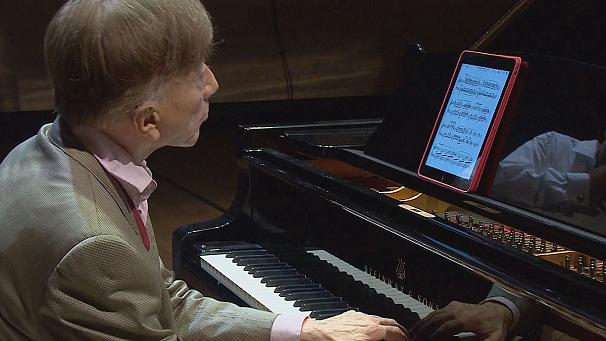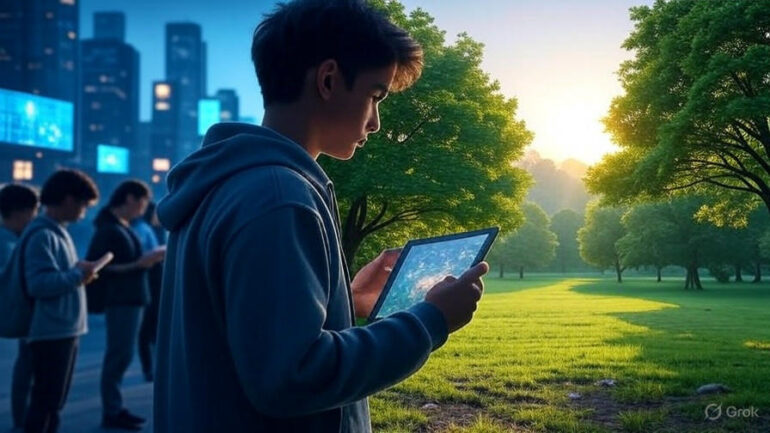chevron_left
-
play_arrow
NGradio So good... like you
At a concert in Budapest, 11-year-old pianist Misi Boros used the Musica Piano instead of a printed score. All classical piano works are available free with this app, created by the publisher Könemann Music in Budapest.
Misi Boros said the app had several advantages: “My backpack weighs 5 kilos, and I have to carry it every day. I have four piano lessons a week and I’m exhausted from carrying my heavy bag all the time. With this app life will be much easier, all the scores are available on my mobile in my pocket. My smartphone only weighs a few grams. I was already thinking about attaching a memory stick to the piano so I could read digital scores. Now this app is the same thing.”
The app also helps music teaching. Any student can connect with any pianist anywhere in the world, even a famous teacher or a celebrated artist. 82-year-old Hungarian pianist, Tamás Vásáry, was the special guest at the Musica Piano app’s launch. He said that the new app would have allowed him to connect to many of the world class pianists he admired so much. All content (piano scores plus functions like teaching, and rehearsals) is available free, once users are online.
The publisher, Ludwig Konemann, said it wished the app had been available years ago: “Why is this application so revolutionary? The fact is that for the first time ever, a publisher uploads all their content to the cloud. A free cloud. So for the first time ever there is more classical music in this cloud than in any music store in the world.”
Another advantage of the new app is that artists can have rehearsals free. The scores in the app are not just digital photos. They are smart scores; the system can recognise music signs.
Oliver Scholz, the app developer, explained how they did it: “We scan original documents, original music scores. But it is not a simple scan process, we use OCR technology, OCR stands for optical character recognition andICR for Intelligent Character Recognition. So we scan as we would a normal document, as a picture, but it recognises the note heads, rests, and other musical signs and puts them all in place.”
Musicologists helped create this app. Because the system makes mistakes while scanning scores, every digital document is checked by a musicologist. Some scores and composers are really tricky. For example Bach, who composed the Invention in C major, sometimes modified his works later on. Musicologists have to help the app’s automatic system understand tricky scores.
Musicologist Livia Hajdu explained the problem: “Bach inserted two extra notes after he finished and published this piece. In his original manuscript we can recognise two different shaped notes. The heads of the notes are different, their figures are flatter. As the manuscript is original, we have to accept both variations.”
And with the end of music printed on paper, we also say goodbye to turning pages.
For more information see Music Piano.
Source: euronews.com
Written by: New Generation Radio
Similar posts
ΔΗΜΟΦΙΛΗ ΑΡΘΡΑ
COPYRIGHT 2020. NGRADIO





















Post comments (0)